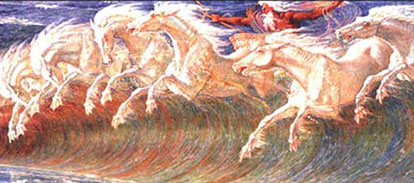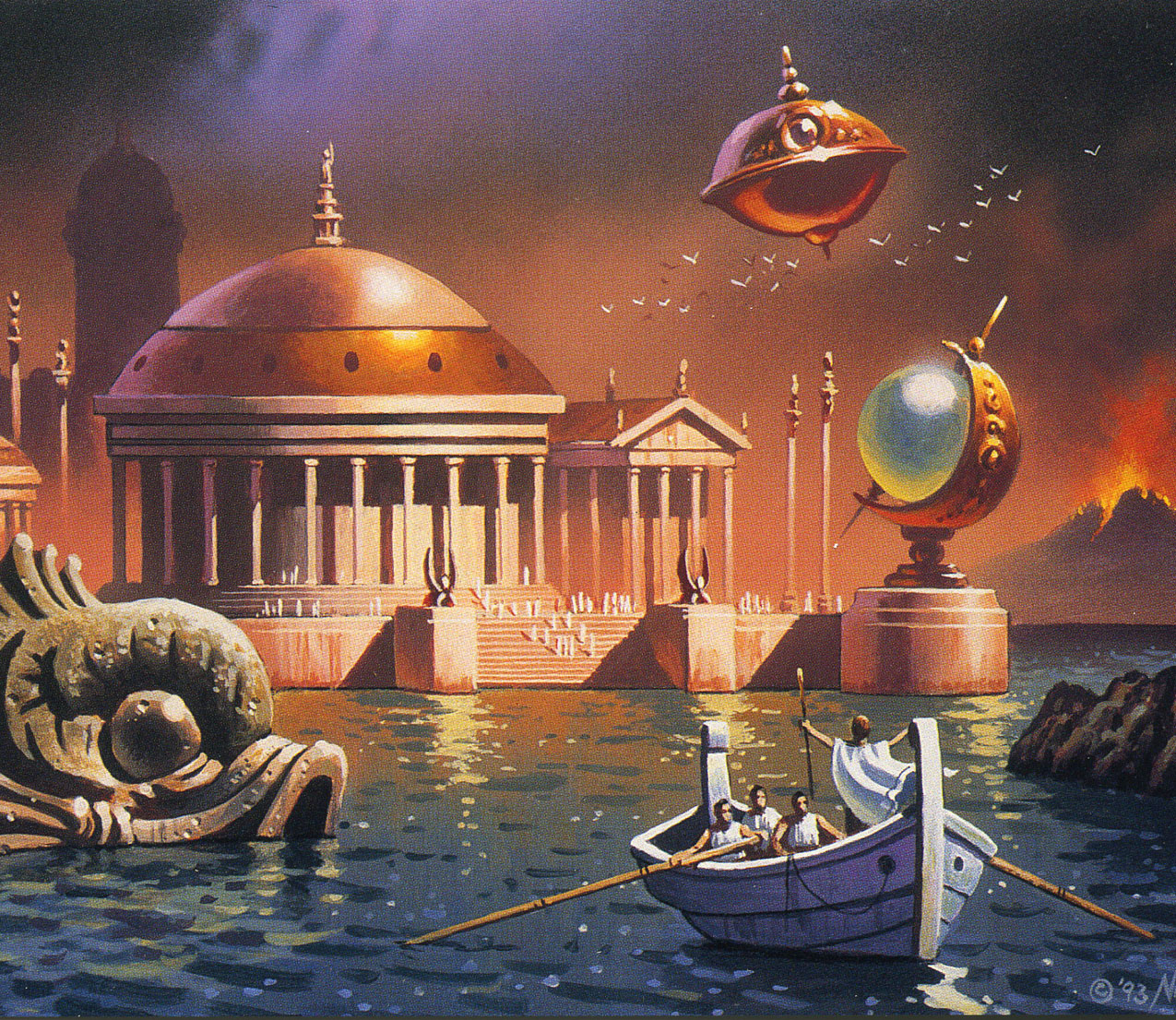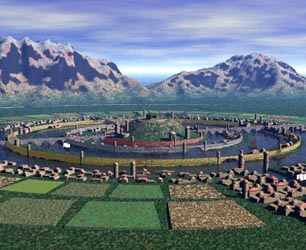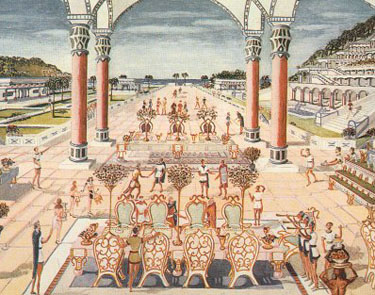Ancient destruction of Atlantis and tragic disaster in Japan today
Mar 14th, 2011 | By L. Frank Bunting | Category: Countries of the World It is altogether an accident that the “the unfolding tragedy in Japan” is happening alongside reports on yet another theory about the “great civilization destroyed by floodwaters following a massive undersea earthquake,” as described in Plato’s 2400-year-old story of the lost world of Atlantis (which purports to recount events that took place 9000 years earlier again).
It is altogether an accident that the “the unfolding tragedy in Japan” is happening alongside reports on yet another theory about the “great civilization destroyed by floodwaters following a massive undersea earthquake,” as described in Plato’s 2400-year-old story of the lost world of Atlantis (which purports to recount events that took place 9000 years earlier again).
Yet whether it is exactly true or not, Plato’s story of Atlantis does underline how human beings on planet earth have long and recurrently had to confront the kinds of appalling and horrifically destructive natural disasters that the people of Japan are still struggling with so impressively in the middle of March 2011 CE. According to Plato: “In a single day and night of misfortune, the island of Atlantis disappeared into the depths of the sea.”
 Since Plato wrote, there have been many theories about just where and what Atlantis was, and how it met its grim end (assuming that Plato’s story itself was not strictly legendary). In the latest in a long line of such tales: “A National Geographic television special that aired on Sunday details the work of American, Canadian and Spanish scientists as they attempt to prove Atlantis existed by following up on space satellite images showing unusual features in an area just north of Cadiz,” on the Atlantic coast of Spain – not far from the Straits of Gibraltar that figure in the location identified by Plato.
Since Plato wrote, there have been many theories about just where and what Atlantis was, and how it met its grim end (assuming that Plato’s story itself was not strictly legendary). In the latest in a long line of such tales: “A National Geographic television special that aired on Sunday details the work of American, Canadian and Spanish scientists as they attempt to prove Atlantis existed by following up on space satellite images showing unusual features in an area just north of Cadiz,” on the Atlantic coast of Spain – not far from the Straits of Gibraltar that figure in the location identified by Plato.
In capsule form: “Just days after the world witnessed the devastating power of natural disasters in Japan, some scientists say they have strong proof of the location of the mythical ‘lost City of Atlantis,’ destroyed by a tsunami thousands of years ago … Historically, the lost city has been commonly believed to be in the middle of an ocean. The new proposed site of Atlantis is 60 miles inland, submerged in the swampy Dona Ana Park north of Cadiz, Spain.” As explained by lead investigator Professor Richard Freund: “This is the power of tsunamis … It is so hard to understand that it can wipe out 60 miles inland, and that’s pretty much what we’re talking about.”
 Freund is based at the University of Hartford in Connecticut. A current summary of the field research he is leading “describes how the Guadalquivir mudflats in Spain’s Dona Ana National Park yielded ‘strange geometric shadows of what look to be the remains of a ringed city’ [which is how Plato described the capital of Atlantis] and offered other hints that ‘an ancient cataclysm suddenly buried a thriving civilization under metres and metres of ocean and mud.’”
Freund is based at the University of Hartford in Connecticut. A current summary of the field research he is leading “describes how the Guadalquivir mudflats in Spain’s Dona Ana National Park yielded ‘strange geometric shadows of what look to be the remains of a ringed city’ [which is how Plato described the capital of Atlantis] and offered other hints that ‘an ancient cataclysm suddenly buried a thriving civilization under metres and metres of ocean and mud.’”
In Canada we are bound to note as well that Professor Freund’s research team includes three Canadian residents: Paul Bauman, “a Boston-born scientist who has lived in Calgary for more than 20 years,” and his “colleagues Jennifer MacDonald, of Calgary, and Laurie Pankratow, of Edmonton.” The Canadian group’s findings have included “extensive structures that could represent canals” (also following Plato’s model, it would seem), and “a statuette that was clearly very different from other cultures in the area, but similar to other styles of carving and representational art of the Bronze Age – the period they were looking at.”
There will be repeats of the National Geographic television special, “Finding Atlantis,” that first aired yesterday. (The first of these will air tomorrow evening, “Tue Mar 15 8P” – for those who receive the US National Geographic channel.)Â A short video prelude or sample can be viewed on the National Geographic website at your leisure.
 Even here, you can’t quite get away from the parallel appalling natural disaster tragedy in Japan, in the middle of March 2011.
Even here, you can’t quite get away from the parallel appalling natural disaster tragedy in Japan, in the middle of March 2011.
Paul Bauman, who “has helped unearth Hudson’s Bay trading posts in Western Canada and located clean water sources in Indonesia’s Aceh province following that country’s 2004 tsunami disaster,” has told Canadian journalists “that his excitement about the Atlantis documentary’s debut has been greatly dampened by the unfolding tragedy in Japan … He’d been telling friends about the upcoming television special featuring the Spanish discoveries … ‘But after the tsunami and the accidents in Japan, that’s the only thing on my mind right now.’”
There has nonetheless been at least some progress in human history. Unlike Atlantis (again assuming Plato was not just making up the story for some dramatic educational effect), we already happily know that Japan is not, in a single day and night of misfortune, going to suddenly disappear into the depths of the sea.
* * * *
If you want to read a little more about the latest “Spanish” and other theories of Atlantis, try:
* Lost city of Atlantis, swamped by tsunami, may be found
* Has the real lost city of Atlantis finally been found… buried under mud flats in Spain?
* Atlantis Found? Film Highlights Professor’s Efforts to Locate Fabled Lost City
* Plato’s Atlantis before Plato
* The Great Atlantis Flood: one terrible day and night of misfortune; the extraordinary inundation of Atlantis, Attica and Hellas
* Atlantis: myth and history and type C mysteries

